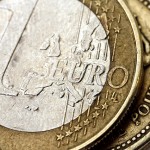The euro trimmed suddenly earlier gains against the US dollar on Thursday, following the overall weaker than projected data on activity in manufacturing and services sectors in Euro regions first two largest economies.
Having reached a fresh 23-month high previously, EUR/USD cross fell sharply to a session low at 1.3764 at 8:05 GMT, after which consolidation followed at 1.3789, still up 0.09% for the day. Support was likely to be found at October 23rd low, 1.3742, while resistance was to be met at November 9th 2011 high, 1.3858.
Earlier today it became clear that economic activity in Germanys private sector expanded at the slowest pace in three months in October. According to data by Markit Economics, the index, which gauges activity in German sector of manufacturing, climbed to a reading of 51.5 in October, as it stood at 51.1 in September. Experts had anticipated an advance to 51.4. Values above the key level of 50.0 are usually considered as a signal that economic activity in the sector has increased. At the same time, the preliminary value of the Services Purchasing Managers Index (PMI) dropped to 52.3 in October from 53.7 a month ago, while expectations pointed that the index will remain unchanged. According to the survey by Markit, it was less likely that activity in Germanys private sector will continue expanding during the upcoming months. In addition to such a claim, the sub-index of new orders showed little improvement in October, climbing at the slowest pace since July, while the sub-index of employment diminished, after it rose in September. This also pointed that confidence among business entities in Germany might have probably dampened.
In France, the manufacturing PMI came in at a value of 49.4 in October, distancing more from the average level of 50.0, which separates expansion from contraction, in comparison with the reading, registered in September, 49.8. Experts estimates of a climb to 50.1 have been confounded. Nations services PMI also slowed down in October, coming in at 50.2 from 51.0 in September, while projections pointed that the index will exceed its final value last month and reach 51.3.
Manufacturing activity in the Euro zone as a whole, measured by the corresponding PMI, showed a slight improvement in October compared to September, as the index climbed to a preliminary value of 51.3 from the recorded final value of 51.1 last month. However, analysts had anticipated a bit greater advance to 51.4. Common currency blocs services PMI slowed even more, reaching 50.9 in October from 52.2 in September. However, despite signals of a wide slowing down of activity in the region, it was possible a more balanced economic growth to be witnessed. The remaining members of the single currency zone have registered a third consecutive month of expanding business activity in October, as this was the first sequence of positive results since the second quarter of 2011. All in all, these data points, taken into consideration, added to concerns that economic recovery in the whole euro bloc was going unevenly during the fourth quarter of the year.
“This data is a wake up call, showing that there are events that can still knock the euro,” said Jane Foley, a senior currency strategist at Rabobank International in London, cited by Bloomberg. “We’ve seen the euro push higher on the back of dollar weakness and the dollar will remain on the back foot, so the fall in the euro will probably be limited.”
Meanwhile, later in the day an official report might reveal that the number of continuing jobless claims in the United States rose to 2.87 million during the week through October 12th from 2.86 million a week ago. On the other hand, according to the median estimate by experts, the initial jobless claims in the country probably fell to 340 000 during the week ended on October 19th from 358 000, as reported in the preceding week.
Elsewhere, the euro was steady against the pound, as EUR/GBP cross ticked up a mere 0.01% to trade at 0.8526 at 9:50 GMT. EUR/JPY pair was gaining 0.13% on a daily basis to trade at 134.34 at 9:50 GMT.





